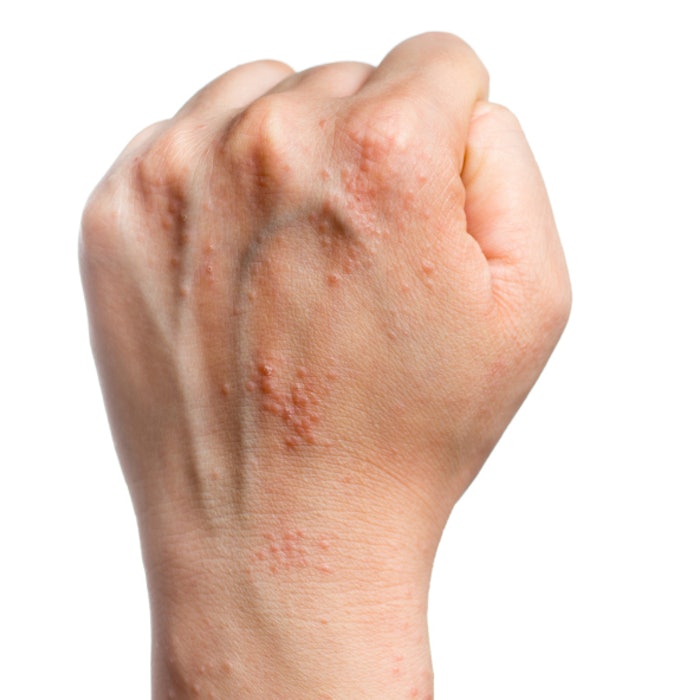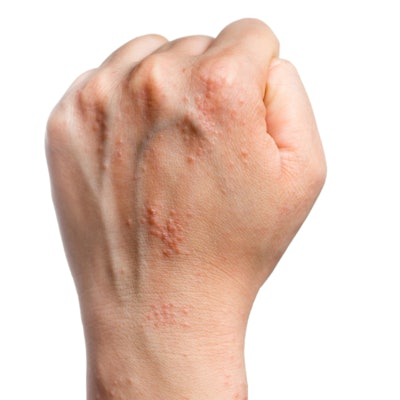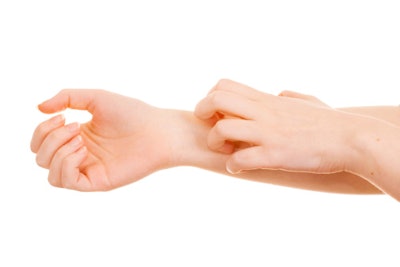

Eczema actually is a word used to describe a variety of different more specific skin conditions – atopic dermatitis, nummular dermatitis, exfoliative dermatitis. The list goes on.
Four of the more common types of eczema are:
Atopic dermatitis is a chronic, itchy, superficial inflammation of the skin that’s more common in families with a history of asthma or hay fever. It is usually made worse with changes in temperature or humidity, as well as by stress and contact with wool clothing (itchy!). Skin will itch and have red, thickened lesions, especially in the elbow bend, eyelids, neck and/or wrists. While bacterial infections can occur as a complication, this sort of eczema is not contagious.
Eczematous dermatitis is a blister-like skin rash caused by irritants like soaps, detergents, acetone, water, acids, topical drugs, dyes, elastic, industrial chemicals, and chemicals found in various beauty products such as sunscreen and perfume. It is usually limited to the place on the skin where exposure to the irritant has occurred. The weird part? The rash can begin anytime between six hours to several years after initial contact with the irritant. However, the body will react more quickly the second time it is exposed to the irritant – within 12 hours.
Nummular dermatitis is a chronic inflammation of the skin with coin-sized blisters that are dry and scaly. The blisters ooze and crust, and are often on arms, legs, and the trunk of the body.
Housewives’ eczema is a common hand dermatitis that’s commonly seen in those who have often have wet hands from doing dishes, washing clothing, changing diapers and then washing hands often, or from sweating under rubber gloves.

The Fix
Doctors can prescribe steroid creams to patients with eczema. Menthol baths and oatmeal baths can reduce itching, and switching to hypoallergenic detergents and cosmetics can limit possibility of irritation. For those whose eczema is likely triggered by wearing gloves, there are vinyl gloves with cotton liners on the market that will reduce that constant sweatiness.
What You Should Do
Do not service clients who have severe symptoms on the hands or feet, such as blistering or open sores. If they have mild eczema with no open sores, it is generally safe to go about treatments as normal. Just be gentle with acetone and alcohol that may further dry out clients’ skin. Apply lotion immediately following their service. Note that paraffin’s temperature changes can actually worsen eczema.
[Images: Thinkstock/iStockphoto]











